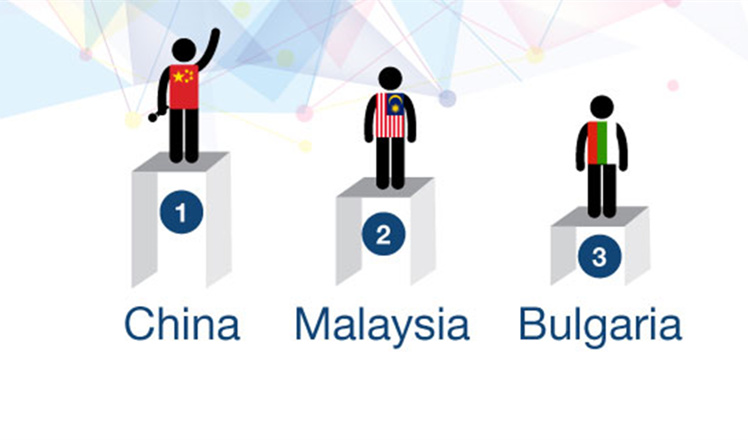G20 summit's gift will be long-term view
Updated: 2016-08-18 08:23
By FERIDE INAN(China Daily)
|
||||||||
 |
|
This aerial photo taken on Sept 16, 2015 shows the Hangzhou Olympic Sports Center in Hangzhou, capital of East China's Zhejiang province. China will host the 2016 Group of Twenty (G20) summit in the eastern city of Hangzhou, a tourism city best known for its West Lake scenic spot, on Sept 4-5. [Photo/Xinhua] |
A backload of issues will be addressed at next month's G20 Leaders' Summit in Hangzhou, East China's Zhejiang province. At a time when the world economy is struggling to recover from global financial crisis, still showing a low growth trajectory and high unemployment, the G20 is striving to turn itself from immediate crisis management to a mechanism for establishing long term governance strategies for better macroeconomic coordination and cooperation to prevent future crises.
A more structured policy coordination framework has been in the works since 2014, when the Brisbane G20 summit set a target of an additional 2 percent growth by 2018 using "1,000-plus actions". Every G20 member state prepared growth strategies with a large number of macroeconomic and structural reform commitments. The "Brisbane agenda" was further developed last year when Turkey held the G20 chair-for instance, country-specific investment strategies were adopted to address shortfalls in growth commitments.
After assuming the G20 chair this year, China laid special emphasis on reforms to boost medium- to long-term growth potential of the world economy. In this connection nine priority areas of structural reform have been identified, and the guiding principles and a set of index system for measuring the progress and results of the reforms are underway.
Since the 2008 crisis policymakers, especially those in advanced economies, have over-relied on monetary policies to stimulate economic activity, leading to macroeconomic and financial instability in developing countries. The use of fiscal policies to stimulate growth on the aggregate demand side has been constrained because of high public debt levels in many countries, especially in some advanced economies. While both monetary and fiscal policies remain critical, the structural reform agenda will address the shortcomings in the current policy frameworks that are critical for boosting long-term growth potential.
The introduction of innovation to the G20 agenda in order to boost potential growth is the most significant development, and it will certainly be a highpoint of the Hangzhou G20 summit. Making innovation one of its overarching four priorities, China also identified "innovation-driven development" and "across-the-board innovation in science and technology" as engines for growth. This framework takes into account the impact of technology on growth combined with links between sustainable development and innovation. Innovation is also central to the commitment to structural reforms.
Besides, China has set up three taskforces this year for innovation, digital economy and the New Industrial Revolution. The last and Third Sherpa meeting in Xiamen, East China's Fujian province, on June 23-25 this year signaled that innovation, as part of the new growth agenda, would be a leading item at the Hangzhou summit. And the concrete outcome of the endeavor is the G20 blueprint for innovation-driven growth, the New Industrial Revolution action plans as well as development of and cooperation in digital economy.
Also global investment policy cooperation and coordination, closely linked to the global diffusion of innovation agenda, emerged as a central focus of the Chinese Presidency. One outcome of discussions this year is the launching of G20 Guiding Principles for Global Investment Policymaking, which is the first framework for multilateral global investment rules.
China, as the G20 chair, has made a rather bold statement that the reach of the G20 should extend beyond its members to include the developing world, which reflects its holistic approach to development. China's cooperation initiative in Africa to support the industrialization of the continent's countries is a very important move. And its holistic approach is aimed at linking the industrialization process with the development of infrastructure and trade. On the other hand, China's 2016 infrastructure agenda emphasizes connectivity enhancing infrastructure-helping develop an interconnected world economy is one of China's overarching priorities-which is vital for providing developing regions with regional and inter-regional connections and facilitating trade.
Moreover, following up on the decision in Antalya, Turkey, to align the United Nations and G20 agendas, China urged G20 member to prepare their national plans for the implementation of the 2030 Agenda. Based on these, the G20 leaders will be presented with a collective action plan, which could to be another highpoint of the Hangzhou summit.
The author is a policy analyst at the Economic Policy Research Foundation of Turkey (TEPAV), the leading T20 think tank under G20 Turkish presidency, and a visiting research fellow at Chongyang Institute for Financial Studies, Renmin University of China.
- Malaysian authorities say ship carrying diesel hijacked
- Army commander: THAAD would 'easily affect' China-US ties
- Twin panda cubs confirmed born in Vienna zoo
- Four killed in boat collision in Greece
- Premier Li to receive Aung San Suu Kyi
- S Korean president names 3 new ministers for partial reshuffle

 China edges Brazil in volleyball quarterfinals
China edges Brazil in volleyball quarterfinals
 China's women's table tennis team sweeps gold
China's women's table tennis team sweeps gold
 Artists build sand sculptures to greet upcoming G20
Artists build sand sculptures to greet upcoming G20
 Top 10 biggest auto makers of 2015
Top 10 biggest auto makers of 2015
 British dad turns breakfast into work of art
British dad turns breakfast into work of art
 China inches up Global Innovation Index 2016
China inches up Global Innovation Index 2016
 Female soldiers on Frigate Jingzhou
Female soldiers on Frigate Jingzhou
 Synchronized swimming duo advances into final
Synchronized swimming duo advances into final
Most Viewed
Editor's Picks

|

|

|

|

|

|
Today's Top News
Trump outlines anti-terror plan, proposing extreme vetting for immigrants
Phelps puts spotlight on cupping
US launches airstrikes against IS targets in Libya's Sirte
Ministry slams US-Korean THAAD deployment
Two police officers shot at protest in Dallas
Abe's blame game reveals his policies failing to get results
Ending wildlife trafficking must be policy priority in Asia
Effects of supply-side reform take time to be seen
US Weekly

|

|








